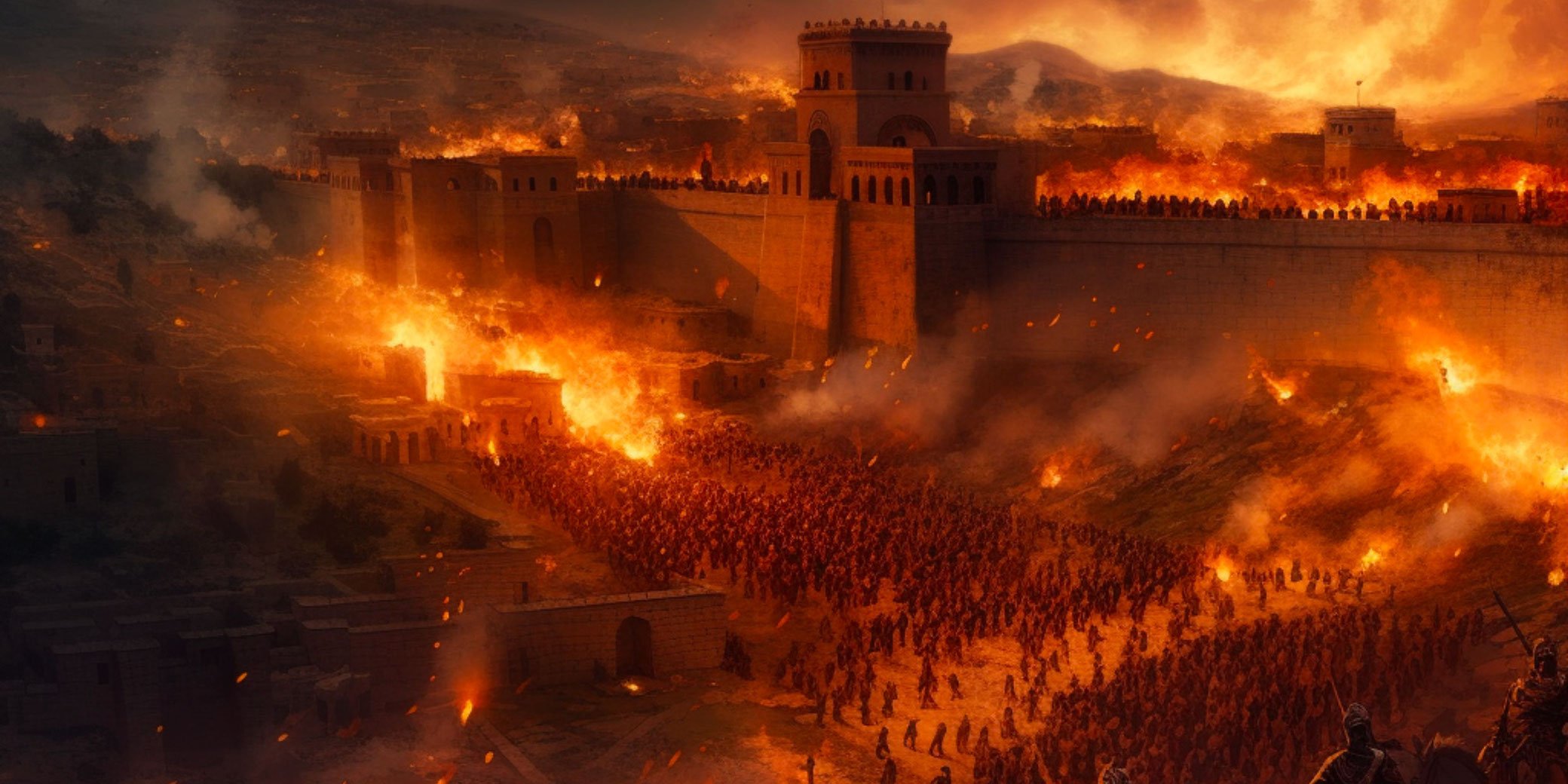9th Sunday after Pentecost
Today’s Gospel portrays Our Blessed Lord weeping over Jerusalem. He is sad because His people have not recognised Him, the long awaited Messiah, the One whom they had prayed for throughout so many centuries. And when He comes, for the most part they refuse to allow themselves to be cuddled under his wings, as a hen gathers her young to protect and nurture them. Jesus weeps over Jerusalem, because He is the God who called them and made them His people, and they have despised His love.
For this Gospel passage to really come alive for us, all it takes is to consider that Jerusalem prefigures the Church. Sadly, many of the sins of the Jews are repeated in the New Testament. Periodically we see many in the Church abandoning Our Blessed Lord by falling into heresy, founding some other Church, or by staying visibly in the Church but ruining the faith of many others – wolves in sheep’s clothing are to be found in every age. Others profess the faith with integrity, but fail to live up to its demands by keeping the Commandments, and so they become a stumbling block for others by leading them into sin.
How could Jesus not weep today as His casts His divine eyes upon the Church? He sees how few souls truly have at heart to spread the Gospel in all its fulness and purity without allowing to to be watered down and polluted with worldly considerations; He sees zeal for spreading the lie of overpopulation and the growing efforts to make sodomy a “nice” thing; He sees too many Catholic couples living pagan lives, contracepting and aborting their children just like the pagans; He sees children being formed not to chastity but to impurity, and so many of them sold into slavery, and so few, even in the Church, caring to take notice. Jesus weeps over the Church as so many of her shepherds invest so much time and so many resources into “saving the environment” but not saving souls, compromising the demands of the faith and failing to warn their flocks of the real danger of eternal damnation. And the list could go on and on.
Utter destruction would be the punishment of Jerusalem for her infidelity. So in the New Testament, the Church must be periodically purified of all the vices that disfigure her. In the early 15th century, many voices had been raised for decades about the need to reform the Church, and ecumenical councils had attempted to do so with hardly any effect. Ten years after Luther pinned his 95 theses on the door of the castle church of Wittenberg, Rome, the eternal city, was the scene of one of the most appalling acts of violence in her history. The troops of the emperor Charles V looted Rome for days on end, stealing, raping, killing, destroying everything they could. Rome was brought to her knees and lay desolate, having received the just punishment for so many sins. Yet, it would still be another twenty years before the true council of reform was gathered at Trent, and finally the Counter Reformation was underway. But it took that terrible beating to make the Church wake up. How slow we are to amend ourselves and learn the lessons of history!
Is it risky to say that we may very well be on the eve of a similar catastrophe? One thing is sure. We all need to wake up before it’s too late. How do we go about doing that? I suggest the first step is to ask Our Lord for the grace of tears. His tears are efficacious. Had Jerusalem repented, it would have been saved by His tears. But it did not. If enough souls weep over the sins of the Church, and beg God’s mercy, chastisements can be averted. For the moment, however, the world seems to only increase the number of its monstrosities, and the leaders of the Church are more concerned with being seen as on the side of the world than in converting the world.
May the grace be given us to join that small army of real lovers of Our Lord who know how to stand, with Our Lady of Sorrows, at the foot of the cross, and to weep for those who will not, for those who are oblivious to their acts of evil, to those who don’t seem to care, but for whom we must, or else no one will. Let us ask for the grace to not fear the criticism of those who condemn us as prophets of doom, as old-fashioned, or whatever other sobriquet. There is sweetness in those tears that flow with those of Jesus. May He give us to taste them.


